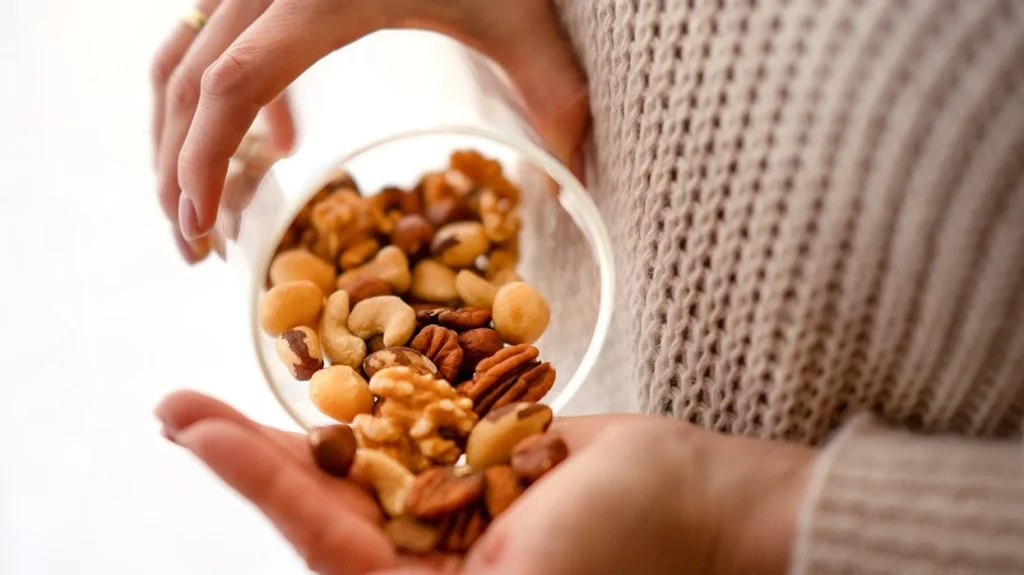A recent study published in The American Journal of Clinical Nutrition reveals that substituting regular snacks with pecans can improve diet quality and lower cholesterol in adults at risk for heart disease. The study highlights the potential health benefits of pecans, especially for individuals with obesity or metabolic syndrome.
Study Overview: Pecans and Cardiometabolic Health
In the United States, cardiometabolic diseases, such as heart disease and diabetes, remain leading causes of death. Poor diet quality plays a major role in these conditions. Research has shown that following healthier eating patterns can reduce the risk of cardiometabolic diseases. However, many Americans struggle to maintain a healthy diet. Replacing unhealthy snacks with nutrient-rich options like nuts could help improve diet quality.
Nuts, particularly pecans, are a key part of a healthy diet. Pecans contain high levels of polyphenols, especially flavan-3-ols. These polyphenols may reduce the risk of cardiovascular disease and support heart health.
Details of the Study
The study took place from July 2022 to December 2023. Researchers looked at the effects of replacing regular snacks with 57 grams of unsalted, raw pecans per day. Participants included adults aged 25 to 70 with obesity or overweight, and those who met at least one criterion for metabolic syndrome. The study aimed to assess how pecans impacted diet quality, vascular health, and cardiometabolic risk factors.
Participants were split into two groups. One group received pecans, while the other continued with their usual diet. Researchers measured various health markers, such as blood pressure, cholesterol levels, blood glucose, and vascular health. They also evaluated diet quality using the Healthy Eating Index (HEI)-2020. Participants recorded their food intake through daily questionnaires and 24-hour dietary recalls.
Key Findings: Cholesterol Improvement and Diet Quality
After 12 weeks, the pecan group showed significant improvements in cholesterol levels. They experienced reductions in total cholesterol, LDL cholesterol (bad cholesterol), non-HDL cholesterol, and triglycerides. The reduction in LDL cholesterol was about 7 mg/dL (6%), which is clinically meaningful and linked to a lower risk of heart disease.
The pecan group also showed improvements in diet quality. By the end of the study, they scored 9.4 points higher on the HEI-2020 compared to the control group. The increase in diet quality came from the pecans’ healthy fats, fiber, and polyphenols. The pecan group consumed more fiber and fats than the control group by the study’s conclusion.
Despite these improvements, no significant changes in vascular health were observed. Both groups had high baseline values for vascular health measures like flow-mediated dilation (FMD) and pulse wave velocity (cf-PWV), indicating normal endothelial function at the start of the study. This may have contributed to the lack of effect on vascular health.
Modest Weight Gain in Pecan Group
Although no significant weight differences were observed in the primary analysis, post hoc analysis revealed a modest weight gain of about 0.7 kg in the pecan group. This gain likely resulted from the calorie density of pecans, which may have led to a slight increase in total caloric intake compared to the snacks they replaced.

